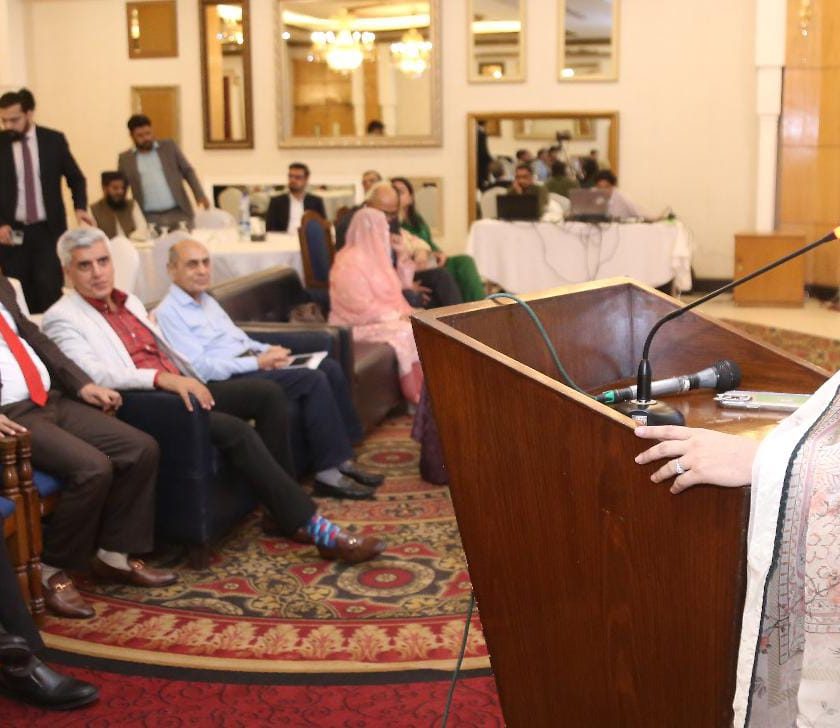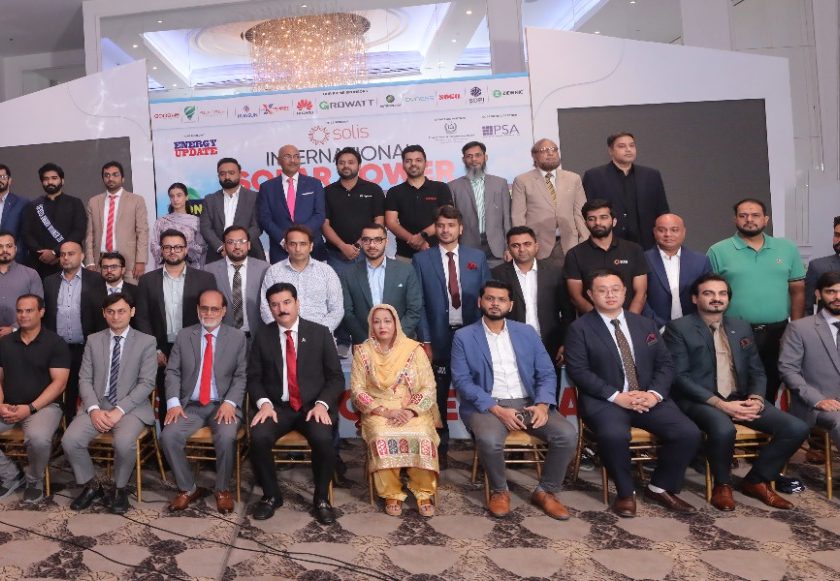[sp_wpcarousel id=”1633″]
Sindh views CCI as the best constitutional forum to resolve thorny issues of alternative energy sector Karachi The Sindh Government is of the view that the Council of Common Interests (CCI) is the right constitutional forum where the contentious issues between the provinces and the federation, which hampered the growth of renewable energy sector, should be referred for their amicable resolution for the sake of greater clean power generation in the country. Sindh Law and Environment Adviser Barrister Murtaza Wahab, who also acts as the spokesman for Sindh government, gave statement to this effect while speaking as the chief guest at the 4th International Wind Energy Summit-2019 organized by the Energy Update. Barrister Wahab said on the occasion that the Constitution of the country clearly mandated the CCI to take up the issues concerning energy and electricity sectors as the federal government could not unilaterally take a decision on these subjects. He said that contentious issues concerning the renewable energy projects like transmission, distribution of electricity produced by them, and their tariff determination should be resolved at the forum of CCI with consensus between the provinces and the centre. He said that due constitutional course should be adopted for resolving the problems between the provinces and the centre as this method would only ensure resolution of all the issues no matter how much thorny they are. He said that public-private partnership mode of development would be utilized by the Sindh government to facilitate the renewable energy projects in the province as earlier it had successfully commissioned the Thar coal and energy project under the same mode. He said that Sindh government was fully committed to the cause of development and expansion of renewable energy sector as one of the innovations it had adopted in this regard was setting up of Sindh Transmission & Dispatch Company as it was the first such provincial company in the power sector of the country. The provincial adviser said that both private sector and government by combining their resources could overcome all the related issues to ensure maximum generation of clean electricity in the country. Earlier in his keynote address on the occasion, Balochistan Energy Secretary Passand Khan Buledi said that serious reservations of Balochistan government over the draft of new renewable energy policy of the country were yet to be addressed by the federal government. He said that provincial government’s reservations over the draft policy existed to the extent that if the policy document was implemented in its present shape then it will not be much helpful in harnessing massive potential of the province to generate clean electricity on basis of wind and solar power. “Balochistan hasn’t produce a single megawatt of clean electricity as the situation will not be much changed if the new renewable energy policy of the country is implemented in the present status without resolving the genuine grievances of the province regarding the policy document,” said Balochistan Energy secretary. “You can call it any policy but you cannot call it a national policy if you simply cut out half of Pakistan from it,” said Mr. Buledi while complaining about Balochistan getting no special consideration in the draft of new renewable energy policy despite having Pakistan’s best wind corridor and sites for solar energy projects. He said that exploitation of natural resources of Balochistan in the past had not been much helpful in uplifting the socio-economic status of the local population as the situation would remain the same in the arena of renewable energy too if the province didn’t get the due recognition and place in the new renewable energy policy of the country. The Balochistan Energy secretary said that when the initial draft of the new renewable energy policy was distributed among the provinces, Balochistan chief minister and he had written letters to the federal authorities concerned to apprise them of the reservations of the province about the draft policy. These reservations remained unresolved when the revised draft of the policy was later shared with the provinces, he said. “The provinces are supposed to implement such a policy as in case provinces are not taken on board while finalizing its draft then the (federal) government should not complain to anyone if the policy is not duly implemented,” he said. He said the roadmap contained in the draft renewable energy policy for generation and evacuation of alternative electricity had not taken into account the potential of solar and wind power of Balochistan. “We say that if renewable energy policy envisages 20 per cent of electricity generation in the country on basis of renewable power by the year 2025 while increasing the same ratio to 30 per cent by the year 2030 then each of the provinces should exactly know how much clean energy it has to produce to meet this goal under the new policy,” he said. He said that new renewable energy policy should give due protection to the LoIs earlier issued by the provinces for wind and solar power projects so that they could be implemented in accordance with the previous policy regime Giving example of the renewable energy potential of Balochistan, the provincial secretary said that up to 170,000 MWs of solar power could be produced if only one per cent of the total land mass of Balochistan was put to use for the purpose. Brig Tariq Qadir Lakhair of Engro Energy said that Balochistan at present presented the best prospects available in the country to do investment in the renewable energy sector. He said that law-enforcement agencies and army in Balochistan had been providing utmost security to people visiting the province with the intention to do wind and solar energy projects. Mayura Botejue, consultant on renewable energy projects, in his presentation said that regulatory impediments were one of the main reasons as that was why wind and solar power in Pakistan didn’t account for more than five per cent of the total electricity produced in the country. He said that the government should clearly state its goals regarding expansion of the capacity of the country to produce renewable energy. He said that hybridization of existing wind power plants was one of the methods to increase production of clean electricity along with the use of improved battery storage technology to harness the potential of solar power. Naeem Qureshi, chairman of the organizing committee of the summit, said that wind energy conference was held every year in order to gather under one roof all the relevant stakeholders related to the alternative energy sector so that they could together meaningfully discuss issues concerning clean electricity production in the country. Zafar Iqbal Subani – Chairman, Hardon Solar, Dr. Nasim A. Khan – Director, Usmani & Company, Engr. Irfan Ahmed – Chairman, IEEEP Karachi Centre, Salis Usman – GM Planning, National Transmission Dispatch Company (NTDC), Mujtaba Haider Khan – CEO, Reon Energy, Danish Ahmed Siddiqui – Marketing Manager, Yousuf Dewan Group of Companies, Engr. Mehfooz Kazi – Director, Solar Project (Govt of Sindh), Rana Uzair Naseem – CEO, Harappa Solar, Farman Lodhi – CEO, Hawa Energy, Fozan Waheed – Head of Sales, Vestas, Mohammad Ali – Director, JCM Power, Engr. Nadeem Ashraf – Director Marketing, Energy Update, Gul Hasan Bhutto – Technical Advisor, Energy Update & others also spoked.





